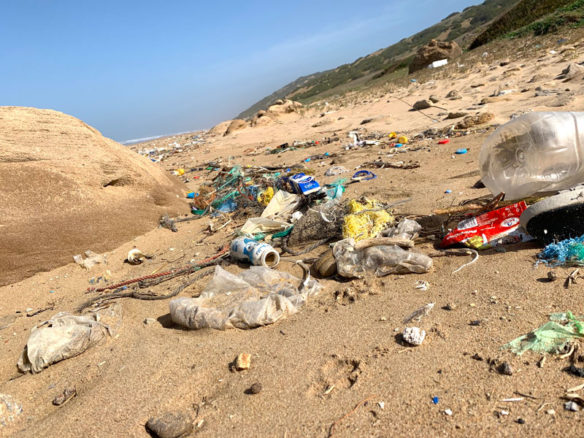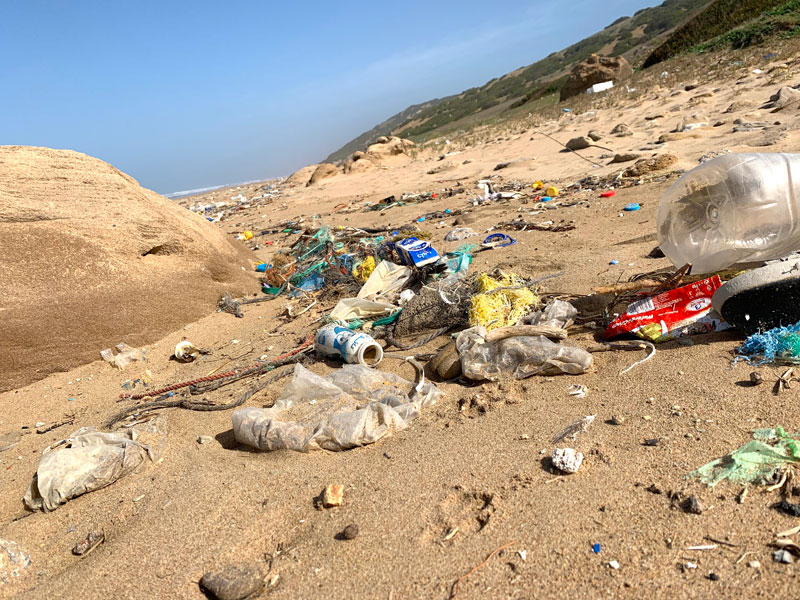
“The unprecedented plastic waste tide plaguing our oceans and shores, can become as limited as our chosen relationship with plastics, which involves a dramatic behavioral change on our part…”
Captions and Photo: © SAF — Coastal Care
Excerpts;
For decades, we were sending the bulk of our recycling to China—tons and tons of it, sent over on ships to be made into goods such as shoes and bags and new plastic products. But last year, the country restricted imports of certain recyclables, including mixed paper—magazines, office paper, junk mail—and most plastics. Waste-management companies across the country are telling towns, cities, and counties that there is no longer a market for their recycling. These municipalities have two choices: pay much higher rates to get rid of recycling, or throw it all away.
Read Full Article; The Atlantic (03-05-2019)
More Recycling Won’t Solve Plastic Pollution; Scientific American (07-06-2018)
Encouraging individuals to recycle more will never solve the problem of a massive production of single-use plastic that should have been avoided in the first place…
Only 14% of plastics are recycled – can tech innovation tackle the rest? Guardian UK (02-22-2017)
Billions of pounds of plastic waste are littering the world’s oceans. Now, an organic chemist and a sailboat captain report that they are developing a process to reuse certain plastics, transforming them from worthless trash into a valuable diesel fuel with a small mobile reactor that could operate on land or at sea…
Scientists calculate impact of China’s ban on plastic waste imports; Science Daily (06-20-2018)
Scientists have calculated the potential global impact of China’s ban on plastic waste imports and how this policy might affect efforts to reduce the amount of plastic waste entering the world’s landfills and natural environment…
With China’s Ban on Waste Imports, Europe Announces New Recycling Initiatives; Yale E360 (01-16-2018)
In the wake of China’s ban on the import of foreign garbage, which took effect earlier this month, countries across the globe are scrambling to figure out what to do with the thousands of tons of trash piling up at their ports. Now, Europe has announced it is launching an aggressive new recycling initiative to reduce plastic waste and garbage exports…
Ocean Oddities: Pacific’s Plastic Island; Surfline (06-06-2017)
Ever since people invented trash, the sea has served as our favorite dump…
More than 8. 3 billion tons of plastics made: Most has now been discarded; Science Daily (07-19-2017)
Humans have created 8.3 billion metric tons of plastics since large-scale production of the synthetic materials began in the early 1950s, and most of it now resides in landfills or the natural environment, according to a study.
Biodegradable plastic ‘false solution’ for ocean waste problem; Guardian UK (05-23-2016)
Biodegradable Plastics Are Not the Answer to Reducing Marine Litter, Says UN; UN News Center (11-23-2015)
Widespread adoption of products labelled ‘biodegradable’ will not significantly decrease the volume of plastic entering the ocean or the physical and chemical risks that plastics pose to marine environment, concluded a UN report released today…
Plastic pollution: When The Mermaids Cry: The Great Plastic Tide, Coastal Care
Plastic is versatile, lightweight, flexible, moisture resistant, strong, and relatively inexpensive. Those are the attractive qualities that lead us, around the world, to such a voracious appetite and over-consumption of plastic goods. However, durable and very slow to degrade, plastic materials that are used in the production of so many products all, ultimately, become waste with staying power. Our tremendous attraction to plastic, coupled with an undeniable behavioral propensity of increasingly over-consuming, discarding, littering and thus polluting, has become a combination of lethal nature…









